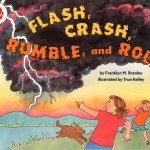Readers & Thinkers: Caveat Emptor
Posted by ludw1086 on Sep 10, 2012 in Anything Goes | Comments Off on Readers & Thinkers: Caveat Emptor
Dear All-
The steps the United States take in the coming weeks are very important in a number of ways. I cannot begin to stress that Congress should be very careful. Some very broad rules that might help Congress with their decisions.
(1) Do not give Paulson a blank check. He is a former Goldman partner with most likely some restricted Goldman shares in a blind trust (according to limited the information I have, he sold most of his GS shares worth around $500M and diversified his holdings). He has a strong conflict of interest regardless of how benevolent he may be or sound, not only due to the possibility of his shares in GS, but also due to the repeated nature of interactions in the financial markets.
(2) There is also the issue of having the Treasury and Fed act quickly and efficiently without too much bureaucratic incumberment. I suggest assembling a strong group of economists with expertise in such matters as (a) derivatives, especially credit derivatives (b) credit risk (c) international economics, (d) macroeconomics and public finance, and (e) housing. This group could also have some practitioners with keen experience that have virtually no conflicts of interest. This group would have to give a majority vote to every part of the plan as outlined by the Treasury and the Fed. This would keep some kind of check on Paulson and others.
(3) I do not think that Paulson should be free from any responsibility for what he does. Within reason, that sort of power is reckless.
(4) If the government uses a reverse auction system to purchase the dirty securities, I think they should also have an independent pricing team come up with their own pricing estimates of the junk BEFORE the auction. These prices should be compared with the final auction price before any government purchase is made. This will serve as a guide to ensure no collusion or other potential issues take place in the auction system.
(5) The government should consider seriously taking an equity stake in some companies, including GOLDMAN SACHS if they use the government’s hand. The equity stake does need to be necessarily the same as the RTC (Resolution Trust Corporation) structure, but with a similar spirit. That is, government bails out these people but taxpayers may receive some of the upside. This would also be in spirit similar to the actions the authorities took with FRE and FNM and AIG.
(6) The equity stake could be related to the amount of junk that is bought from these banks. Distressed debt hedge funds and private equity firms do these sort of deals all the time. Remember the NRG deal. Capital in exchange for equity with an eventual selling out plan.
(7) There are many options. Let’s not forget the vast amount of literature on this subject, including some of the early pieces, like of Walter Bagehot and other writers of lenders of last resort.
Finally, I do not think things look good for the US economy regardless of what is done. It will help alleviate some of the credit crunch, but essentially as housing continues to turn sour, there will be more pain. We will also see it in other sectors of the US economy very soon. So my advice is the best thing you can buy for your kids for Christmas this year is a short position on US retail stocks (I would have added bank stocks, but that’s against the law).
Sincerely
Ludwig
September 23, 2008






